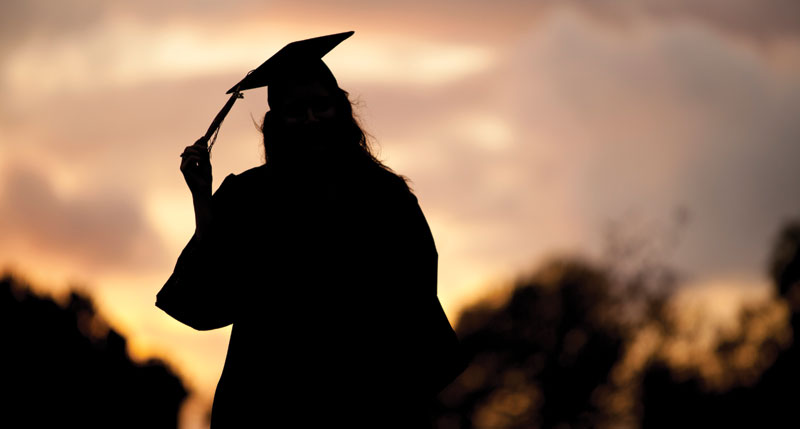
Once upon a time, when high school seniors used to ask me, as a professor, “what’s a good school to attend,” they wondered where to best study history or philosophy or commerce. They asked what schools might be most intellectual, or friendly, or humanities-oriented. Last week in Los Angeles, when smart, impressive, idealistic Jewish day school students asked me “what’s a good school” – they were mainly asking: “Where will I be safe and comfortable as a Jew?”
When I met with their college counselors afterwards, I echoed my message to students and parents too: “No, you’re not crazy, the world is. It’s turned on you, on us!”
How could it be that in 2024, reassurance must be offered – or that this article offering a guide to perplexed parents and students has to be written?
Yes, it’s higher education high anxiety time – with early decision applications filed and most colleges’ Jan. 1 application deadlines looming. As if that annual assault on high school seniors’ psyches weren’t stressful enough, welcome to the most bizarre, nerve-wracking, confounding, disappointing college admission season in American Jewish history.
Welcome to the most bizarre, nerve-wracking, confounding, disappointing college admission season in American Jewish history.
Last year, at this time, most Jews assumed the crisis would pass. We were still reeling from the horrors of Hamas’ rampage. But most expected that Israel’s war would end quickly – as would the Academic Intifada against the Jews. Few anticipated how long Israel’s just war would continue. Even fewer anticipated how much more hostile many campuses would turn in the spring, or how betrayed most American Jews would feel – by an academic world Jews helped build and fund and which the American Jewish community worshipped.
Since Oct. 7, Israel has been living in three time zones. First, Israelis live in the moment, from second to second, from battle to battle, and, alas, from funeral to funeral. We must win this multi-front war, as soon but as thoroughly as possible. Israel’s fighters remain motivated, seeing all that still needs to be done.
Second, Israelis – and especially our leaders — must be envisioning the day after, figuring out what victory looks like and how Israel rebuilds.
Finally, with thanks to Bill Clinton’s 1992 campaign and Fleetwood Mac, we won’t stop thinking about tomorrow, wondering how to apply lessons learned since Oct. 7 to build a better Israel, a better world Jewish community, and a better world.
Similarly, prospective college students and their parents, must live in three time zones. First, the clock is ticking for high school seniors. Each must decide: “What am I doing next year, where do I go, assuming the Academic Intifada is still raging?” Second, we all must brainstorm about helpful takeaways, quick fixes, and improvised solutions that can help so many of us, old and young, navigate this jihad-encouraging storm. Finally, let’s think big, dreaming about a better day – while demanding sweeping higher education reforms so that no student, let alone no Jew, feels threatened on any campus – or any North American street.
At the same time, let’s resist the hysteria fueling the political, media, and academic worlds – and has long been a stable of Diaspora Jewish life. Define the problem, without being defined by it – or exaggerating it.
There is an Academic Intifada – a fury against Israel fed by a wider obsession with “settler colonialism” and identity politics, intensified by the Marxist application of the reductionist oppressed-oppressor binary to race and gender, while demonizing little Israel, as the world’s biggest villain.
Calling it the Academic Intifada uses the haters’ language. When some objected to the Woke theology spreading in intellectual circles, liberals pointed to the War on Woke of Donald Trump and Ron DeSantis to dismiss any critique of academia as right-wing lunacy. When experts objected that Critical Race Theory reduced everyone to their skin color in racist ways, they were accused of not wanting to fight racism. Anyone who blamed postmodernism simply elicited a “huh … what are you talking about?”
Now, for over a year, the illiberal liberals dominating many universities have screeched: “Globalize the Intifada … From the River to the Sea.” So let’s take these violence-addled radicals at their word. The Hamas charter endorses Israel’s destruction. The Palestinian Authority’s leader denies Israel’s right to exist in U.N. speeches. And too many academics echo these bloodthirsty cries seeking to eliminate the world’s only Jewish state from the Jordan River to the Mediterranean Sea.
In January, 2024, Harry R. Lewis, a legendary Harvard dean, searched Harvard’s online course catalogue. He found the phrase “Social Justice” mentioned in over 100 courses, the words “oppression and liberation” in over 80, and the Woke buzzwords “decolonize,” “intersectionality,” and “white supremacy” colonizing the curriculum, too. Dean Lewis objected to this flight from complexity, “oversimplified in our teachings as Manichaean struggles — between oppressed people and their oppressors.” All this, he lamented, gave a veneer of academic respectability” to “the ugly old stereotype of Jews as evil but deviously successful people.”
The phrase “Social Justice” was mentioned in over 100 courses, “oppression and liberation” in over 80, and the Woke buzzwords “decolonize,” “intersectionality,” and “white supremacy” colonizing the curriculum, too.
Meanwhile, DEI – Diversity, Equity, Inclusion – regimes dominating many university hiring and promotion committees go far beyond seeking out minority candidates. They impose ideological uniformity in the name of “diversity,” demanding that scholars champion this one politically-charged, anti-intellectual idea. With the universities’ DEI budget approaching 1 billion dollars, and with the average public university employing 45 DEI commissars, doctrinaire bureaucrats are imposing doctrines many professors promulgate and students champion.
Those dismissing the problem as right-wing phantasms are gaslighting the public and fooling themselves. The denial runs deep – and daft. A respected history professor, David Blight, took to The New York Times after the election, admitting “Universities Like Yale Need a Reckoning.” While pretending to regret the “hubris” of “we university liberals,” when he admits that so many Americans lost “confidence” in universities, Blight stonewalls, blaming “steady diets of negative press about alleged leftist ideological purity.”
Yet, nine days earlier, Yale students writing in Publius proved that such leftist monomania inhibited debate. They admitted envying the beleaguered minority of conservative classmates forced to sharpen their arguments through constant disagreement with professors and schoolmates. Meanwhile, they in the liberal majority suffocate intellectually, choking on “those buzzwords and slogans” advancing “the Yale political orthodoxy.”
Still, this mania has not ruined every university, or even every department in the universities dominating the headlines as anti-Zionist danger zones. Exaggerating terrifies our students. Only nuance will set us free. Ratcheting down the rhetoric, viewing this problem in a balanced manner is the best way to find a realistic plan for high school seniors – and, ultimately, to carve ways out of this systemic failure of American higher education to educate students thoughtfully, fairly.
I. In the Moment: What to Do Next Year
Most practically, in deciding where to apply, students should do what they have always done – try understanding who they are and what kind of environment works best for them. Some will thrive amid conflict. Elisha Baker, a Columbia University student hero, argued in Tablet that students should “Stay and Engage.” Universities remain gateways to greater success in America, and we shouldn’t give Jew-haters the delight of driving us out. Moreover, the “resilience” honed by facing down this madness strengthened many young Jews’ identities.
So, know thyself. Feel free to go to a contentious campus and fight. But, also, feel free to go to a volatile university, avoid politics, and get the education you deserve.
Different departments have different characters – some are more Woke than others. Different fields have different approaches too. STEM fields remain more resistant to the ideological fanaticism hijacking many humanities and social science fields. Outside of science and math, aggressive radicals are met by the Silence of the Tenured Lambs. The more carefully you look – sifting through course catalogues, student evaluations, and older students’ word-of-mouth — the more informed your decision will be.
STEM fields remain more resistant to the ideological fanaticism hijacking many humanities and social science fields. Outside of science and math, aggressive radicals are met by the Silence of the Tenured Lambs.
Most important, do not view this important college choice only through the lens of the Academic Intifada. Your decision-making moment should be a values-clarification process. Too much of the admissions game has become an endless stress-a-thon of grade-grubbing, resume-padding, grandiose essay-writing, and university brown-nosing, seeking to get our students into what the US News and World Report deems to be the “best” school they can.
Take a breath. Think about your mind – and soul. Ask what are your or your children’s educational goals? What kind of learning environment works best for you or them? What topics appeal – and which universities highlight those fields? Then go broader. What kind of campus seems most suitable? How robust is the Jewish community – from day to day, from Shabbat to Shabbat?
Our enemies want everything to be about them, their anger, the violence they threaten. When we ignore them, maintaining normal routines and life-long trajectories, we reduce their power rather than exaggerating it.
While evaluating, address these key tensions:
• Ivy U versus Grassroots U: Last spring, The Washington Monthly reminded us – especially Jewish parents — that there are 1,421 public and private nonprofit colleges. Protests took place on 318 campuses, with encampments occurring on 123 of them. Most disturbances occurred at the “highly selective colleges” Jewish parents and seniors obsess about. Let’s call them “Ivy U” – even though it’s not just the eight Ivy League schools — as opposed to “Grassroots U.”
The Woke mind virus has most infected the upper middle class Regressive Progressives and the most privileged intellectuals Ivy U produces and hires. Most Americans don’t appreciate how impressive most American universities are. The glut of good faculty means that many less well-known institutions have top teachers and researchers. And “Grassroots U” often offers true diversity – viewpoint diversity and a mix of economic backgrounds, not just the required rainbow of skin colors.
American Jews became addicted to America’s elite schools. It’s time to broaden our understanding of what is a “good school” and a valuable educational experience.
American Jews became addicted to America’s elite schools. It’s time to broaden our understanding of what is a “good school” and a valuable educational experience.
• Big Campus versus Small Campus: Even among the elite schools, there’s a great divide. True, many of the ugliest incidents occurred at Harvard, Columbia, UCLA, Berkley, and other super-sized multi-versities. But these large schools also boast larger Jewish communities. They host a critical mass of Orthodox students, Zionist activists, and engaged liberal Jews to push back. Even more important Jewish communities and activities there transcend the politics. Quality Jewish life is quality Jewish life – but quantity helps.
Similarly, in small schools, the traditional advantage of intimate community often turns ominous. Many smaller selective schools like Swarthmore and Oberlin have students who police one another more aggressively – and cruelly. Jewish students there lack the critical mass – and the anonymity which might allow me to advocate publicly for Israel on the quad in the evening, and sit in chemistry class the next morning without being harassed.
• Red State Colleges versus Blue State Colleges: Just as the institutions American Jews most worship from academia to the media have betrayed them, the progressive cities and suburbs where most Jews live have become the most hostile to Israel. True, right-wing Jew-hatred in Red States is also rising, but not so much in Red State universities. That’s why, in a highly-polarized America, Harvard, in the People’s Republic of Massachusetts, has more Bash Israel Firsters than University of Florida, located in DeSantisburg. And a heartening day-after development is the rise of centers of liberal education exploring not undermining Western Civilization, at University of Florida and elsewhere.
• Yeshiva University versus Secular College: Many Orthodox kids often imply there are only two universities in America: “YU” and “secular college.” YU includes Yeshiva University and Touro College. These contained, supportive, Orthodox environments are distinct but parallel – for better and worse. YU is dramatically improving its secular studies and reaching out more broadly. Consider using your university years to plunge deep into a Jewish environment, with Jewish values and substantive Jewish learning, while getting a degree from a respectable institution.
• North America versus Israel: Dollar-for-dollar, Israeli universities offer the best educational value in the world. After paying tuitions ranging from $5,000 to $20,000, students can fly home for Thanksgiving, winter break, and spring break, while still saving buckets of money, even at current airfares. Even more important, studying in Israel provides a priceless, character-building, identity-deepening Jewish experience, along with exposure to big ideas and world-class researchers.
Finally, just as some students went to Israel for a year to wait out COVID, consider spending a Gap Year in Israel to wait out the Academic Intifada. Israel is safe for civilians – far safer than certain American inner cities. And while the oppressed-oppressor orthodoxies fueling the Academic Intifada won’t disappear in a year, the protests might fade away soon. As of this writing, this fall semester has been calmer than last spring’s – proving the value of showing firm leadership in universities even as Israel’s wars continue.
More important, rather than running away from the campus insanity, spending a gap year in Israel plunges you into your own Jewish journey in the Jewish people’s forever homeland. Coming to university after a year spent in Israel offers a great inoculation to campus anti-Zionism and contempt for Judaism. A year of maturation, character development, and soul-stretching makes returnees less susceptible to professorial manipulation, peer pressure, even the grade obsession which sometimes derails educational journeys.
Beyond these big picture questions, each university has its own character. Even more important, remember, ultimately, we are who we are. Each of us is bigger than Harvard or Princeton or USC or Stanford. What one gets from educational institutions often reveals more about the students than the educators or the campus. We are ultimately defined by our actions and our values not our academic pedigrees.
II. The Day After: Quick and Easy Fixes
Clearly, universities are broken. The reform required will take lots of time, big money, and sweeping vision. Meanwhile, start small. During the next four-and-a-half years, next year’s incoming students can be agents of change – and its beneficiaries. In assessing universities, judge how open they are to change – and how arrogant or sclerotic they are. And consider four dimensions to improve:
1. The Quality of Jewish Life: Building Inspiring Jewish Communities: We are not victims. Jewish communities can develop and be transformed by new, passionate, proud, pro-Zionist students. Don’t just fight the haters outside – build a meaning-making, supportive, challenging community within.
2. The Quality of Teaching: Fighting Educational Malpractice: The more we frame the challenges as universal, the more successful we will be. Students and parents must become consumer activists, demanding quality education. That means good teaching. That means zero tolerance for educational malpractice which turns the holy classroom podium into a political platform. That means demanding administrators stop any bullying in dorms or on the quad. And that means using whatever levers of power, including tuition strikes with next month’s bill put in an escrow account with dozens of other fellow parents, until basic conditions are met – if problems arise.
Students and parents must become consumer activists, demanding quality education. That means good teaching. That means zero tolerance for educational malpractice which turns the holy classroom podium into a political platform.
3. Building New Centers of Civics-Oriented Liberal Education. Reforming the university will take decades – given that tenured professors can hold their chairs for 40 years. But new centers committed to open-ended, critical and self-critical education, studying great books and Western ideas, can be launched more quickly and cheaply – generating alternatives for students frustrated by today’s Woke Professoriate and Rampaging Snowflakes.
4. Pushing for a Less Woke, More Character-Driven campus: In recent years, Freshman — I mean, First Year — orientation felt like Woke Reeducation Camp on some campuses. Why not assign John Stuart Mill’s “On Liberty” to teach about robust debate rather than imposing some warmed-over Marxist tripe. Focus less on adding more oppressed groups to DEI trainings; teach empathy instead, building character, and a sense of community. Just as the most extreme illiberal liberalism overran elite campuses over 10 years, it’s possible to start dialing it back.
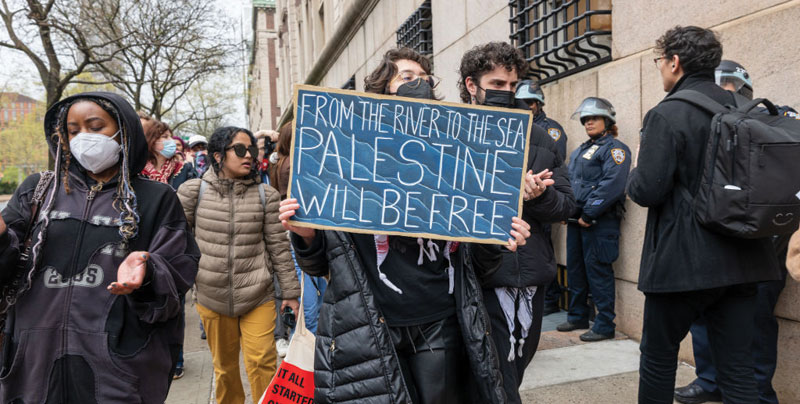
But don’t go overboard. The worst ideas are good ideas that went all accelerator, no brake. Learn what we can from the culture of anti-racism, gender equality, and sensitivity to others, in proportion, without weaponizing biological differences, locking people into biographical or biological categories, and squelching any debate.
III. Don’t Stop Thinking About Tomorrow
This is beyond this article’s scope. But tomorrow’s college students should be critical, raising big questions with professors and administrators, as well as fellow students and parents: what is the university’s mission today? How are universities succeeding and failing? How must they change?
Students and parents, especially Jews, must rethink some basics too. Note how frequently adults ask youngsters, “what are you studying,” or “where are you going to school” not “how is your soul?” The message is clear: Get ahead and make money, that’s how we define you. While rethinking universities’ roles, rethink our obsession with getting ahead in our lives and our addiction to certain kinds of universities as the gateways to one particular kind of success.
Finally, tomorrow’s students should learn from their wisest coaches – today’s students. To help, every college Hillel should issue a Zionism and anti-Zionism index, describing their own school – emphasizing positive Jewish and Zionist responses not just the negative. As the Woke movement becomes intertwined with the Academic Intifada, generate a Woke Index – school by school, department by department, professor by professor. Try to be more factual and analytical than personal; don’t make it about creating a counter cancel-culture. Instead, respond to orthodoxies, fanaticisms, and purges, with integrity, subtlety and transparency.
As students and parents weigh these difficult choices, stop to say, “how lucky we are.” In some societies, and among some fellow Americans, you finish high school and go straight to work – or unemployment. In some societies, and among some fellow Jews living in the Jewish homeland, you finish high school and go straight to the army. While military service can be character-building and life-transforming in many positive ways, the opportunity to plunge straight into your studies is a gift from your visionary ancestors who made it to North America, from your hardworking parents, and from your country which, despite some faults, is far more functional than most acknowledge these days. Good luck – enjoy the ride and make the best of it.
Professor Gil Troy, a Senior Fellow in Zionist Thought at the JPPI, the Jewish People Policy Institute, the Global ThinkTank of the Jewish People, is an American presidential historian. His latest book, To Resist the Academic Intifada: Letters to My Students on Defending the Zionist Dream was just published.
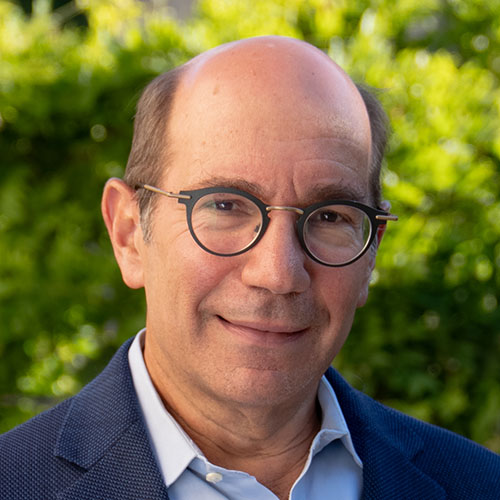









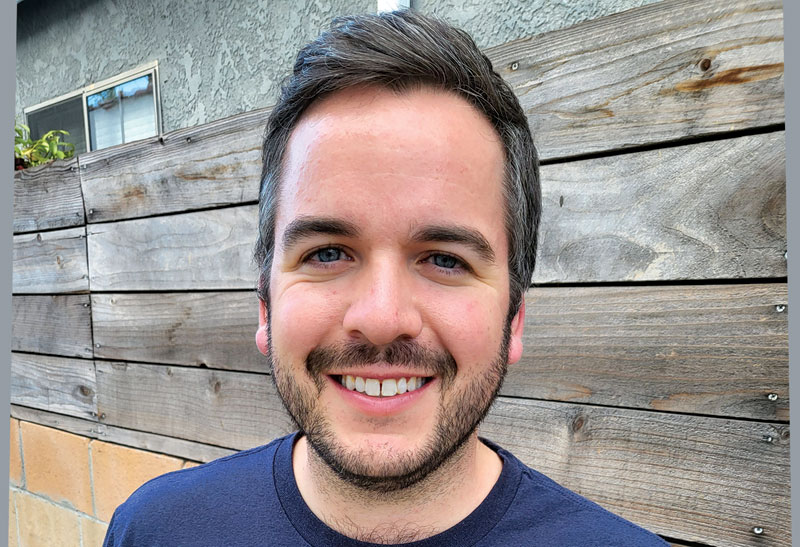
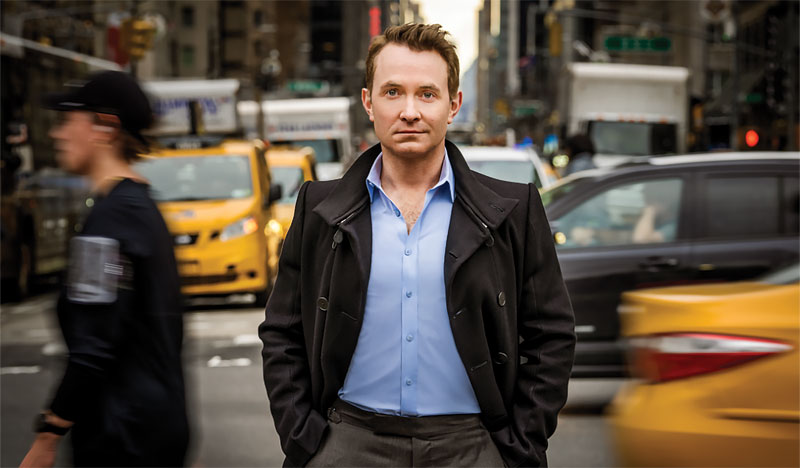


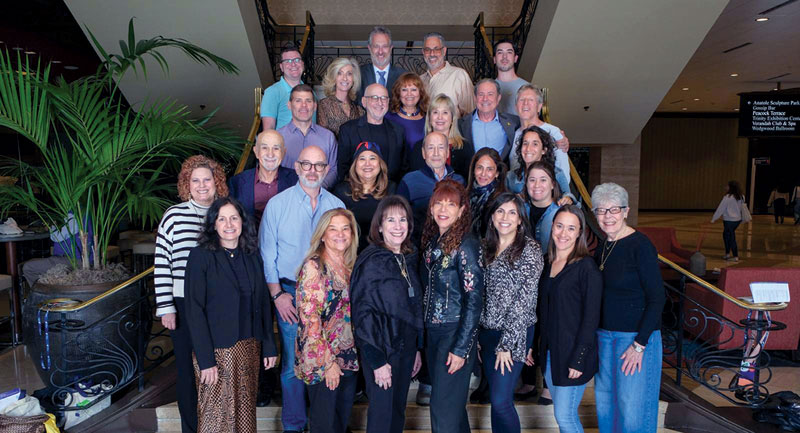
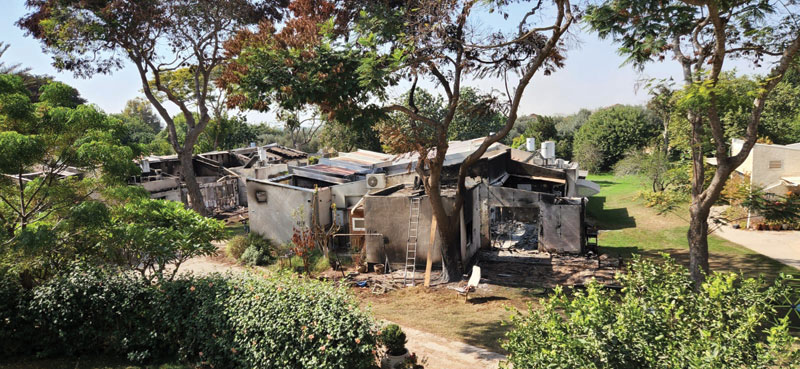
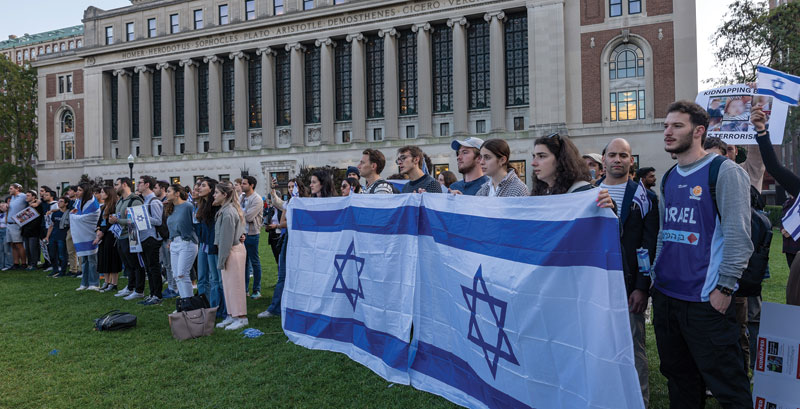






 More news and opinions than at a Shabbat dinner, right in your inbox.
More news and opinions than at a Shabbat dinner, right in your inbox.